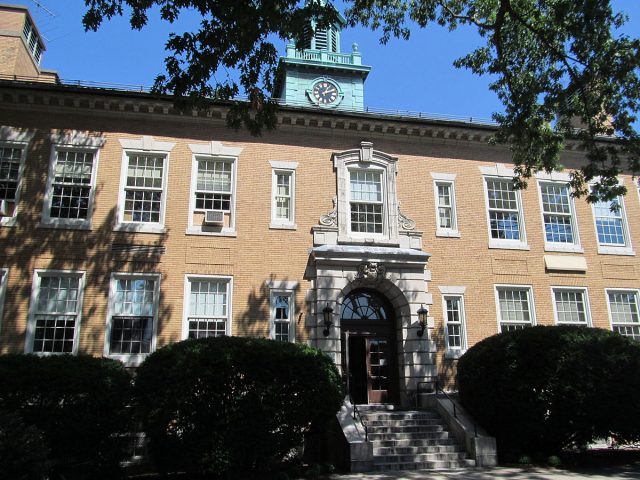When Brookline’s $120 million renovation of the Devotion School is complete, it will feature about 24,500 square feet of new space and accommodate an additional 200 K-8 students.
What also needs to change is its name. Founded in 1894, the school is named for Edward Devotion, an 18th century Brookline benefactor — and slave owner.
Devotion, who died in 1744, directed that land he bequeathed to the town be used for a school. His home, the oldest in the town, remains on that property. Among the assets listed in his will was “1 Negrow.”
“I thought it was named for some obscure commitment to faith and human ideals,” said Deborah Brown, a longtime Brookline resident, pushing for a name change. “It was not.”
The new Devotion School is scheduled to reopen in September.
On a possible change to the school’s name, Helen Charlupski, a Brookline School Committee member and chair of its capital subcommittee, said, “We haven’t dealt with it, but that’s not to say we’re not going to. There are naming policies, and we need to follow the policy the school put forward in terms of naming.”
Charlupski said she is “gathering information” about Devotion to help guide any official discussion. “This is a very difficult subject and not something that needs to be taken lightly.” She added that the town has never changed a school’s name.
This is not the first time Brookline has grappled with its slave-owning history. Six years ago, Brookline passed a resolution from its Hidden Brookline Committee acknowledging that the town participated in slavery. Before that, the town installed a plaque recognizing slaves buried in Brookline’s first cemetery.
According to Brown, Charlupski offered a compromise — retaining the school’s name, but installing a plaque denoting what Charlupski told the Globe would be “both sides” of Devotion’s history. Speaking to the Globe, Brown called that a “nonstarter.”
“It’s really a contradiction,” she said. “On one hand, you’re going to have a plaque in front of the school saying Devotion was a slaveholder, but being a slaveholder really isn’t bad enough that you would perhaps not name a school after him? It sends a really bad message to kids.”
Removing Devotion’s name from the school would not be an erasure of history. The town can still acknowledge Devotion’s contribution while making clear how he — and others — perpetuated and profited from human bondage. Given that the town prides itself on diversity and owning its difficult past, keeping a slaveholder’s name on one of its schools is egregiously out of step with its touted values.

















